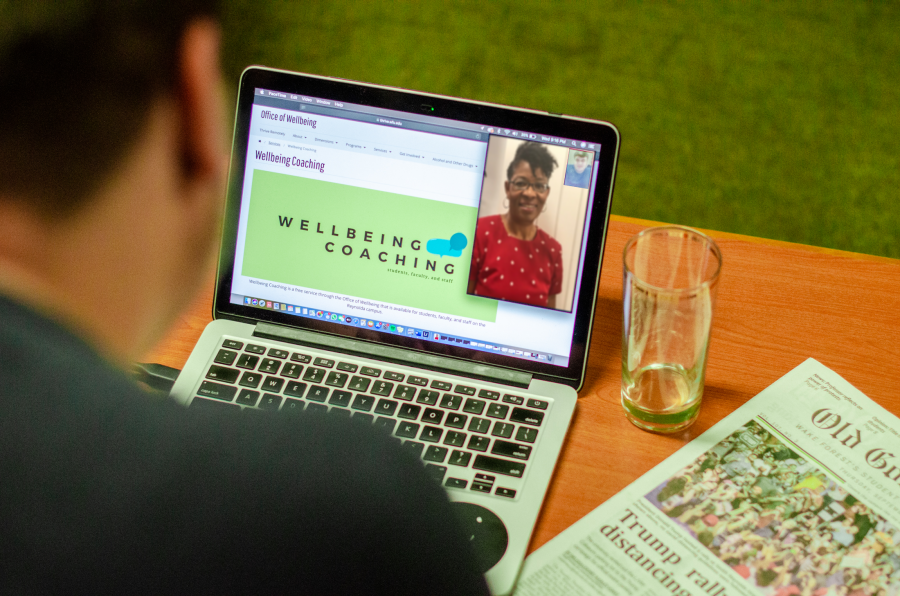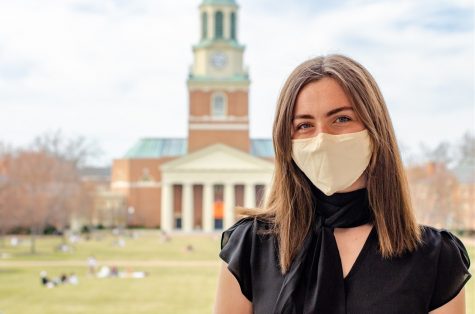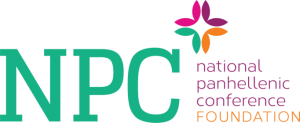Office of Wellbeing adapts to COVID-19
September 24, 2020
One thing that people who have gone through periods of anxiety or depression will tell you is that being proactive is far more effective than being reactive when it comes to effectively treating mental illness.
This proactive approach can present itself in the form of cultivating and maintaining healthy relationships or even following a sleep schedule to benefit the brain. There is no one-size-fits-all plan that someone can follow to recover from or avoid developing mental illness.
In reality, an unending supply of coping mechanisms and resilience-building tools exist and can be strung together into an infinite number of arrangements depending on the situation at hand. To Ashley Hawkins Parham, Program Manager of Wellbeing at Wake Forest, the Office of Wellbeing’s most important duty is helping students realize that their mental health should be approached with the same vigor and attention as their physical health.
But with eight dimensions of wellness to cover and one major global pandemic disrupting the lives of everyone worldwide, a new sense of normalcy needs to be developed.
The Office of Wellbeing, similar to the University Counseling Center (UCC), is currently understaffed. This understaffing is not the only challenge that the office is facing. Their popular massage therapy is not being offered right now due to Center of Disease Control guidelines. Additionally, programs and initiatives typically hosted by the Office of Wellbeing have either transitioned to an online format or been put on hold, as they are only truly effective in-person.
Among the programs that have been shifted to a virtual format is ResilientWake, a skills-based group that focuses on resilience building. As defined on the THRIVE Office’s website, “resilience is our ability to face those inevitable challenges and changes with grace.”
The ResilientWake Workshop Series is one of the many programs lifted off the ground by Parham and is based off of the research she completed regarding positive psychology, counseling psychology and Eastern and Western philosophy.
“I created this workshop series that is four sessions and is actually parallel to the KORU structure. We meet once a week for one month,” Parham said when asked about the structure and time commitment behind ResilientWake. “There is no book, no prep work. Basically, you just come and then build a toolbox full of resilience skills.”
These resilience skills range from learning trauma sensitive techniques to aid in connecting to the mind and body, discussing different perspectives about the world, identifying negative thinking traps, reacting to failure and working through various life challenges.
The Office of Wellbeing also hosts weekly Resilient Wake Weekend Challenges and, starting Friday, Sept. 25, these challenges will be taking place in person. With two sessions each capped at 10 participants, the first session will teach students how to combat loneliness during COVID-19.
ResilientWake is just one of the many programs THRIVE offers to Wake Forest students.
Gold Apron Cooking, in conjunction with the student nutritionist, are resources provided by THRIVE to promote healthy, mindful eating in a realistic way for college students. The Sleepin Deacon campaign is another event put on by the THRIVE Office that stresses the importance of sleep and provides students with tools such as a sleep tracker and self-checking strategies to monitor their sleeping habits.
One of the services offered by The Office of Wellbeing that has gained traction because of the pandemic has been one-on-one Wellbeing Coaching. There are currently three coaches who host free, 30-minute drop-in slots for students to talk about wellbeing and, if requested, can meet more regularly as the semester goes on.
Wellbeing coaching differs from the pastoral care that the Chaplain’s Office offers and the individual or group therapy that the UCC offers because the type of advisors that each of these offices provides is so incredibly different.
“If you go to the counseling office, you talk with a professional who is meant to address and heal trauma or challenge. If you go to the Office of the Chaplain, those are professional spiritual advisors,” Parham said. “Health and wellness coaching is action-oriented and is a collaborative effort between coach and client … You establish goals together and have an end goal, which is not exactly how spiritual guidance works.”
When asked for any advice to offer students sitting on the fence and trying to determine whether or not they should try traditional or non-traditional wellness work, Parham’s face lit up through the screen.
“Of course they should take a leap! Why not try something new? The worst thing that can happen is nothing … and you’re already there,” Parham said.
If you would like to learn more about the services that the THRIVE Office provides, call the office at 336-758-3089 or go to thrive.wfu.edu.













